Introduction
We often think of aging in terms of what we see in the mirror—a new wrinkle, a few grey hairs, a little less spring in our step. But what if the true secret to a long, vibrant life isn’t on the surface, but deep within our bodies, at a level we can’t even see?
Think of your body as a bustling city. The buildings, roads, and power grids are your organs and systems. But the citizens—the individual workers doing all the jobs—are your cells. If those citizens are healthy, energized, and resilient, the city thrives. If they become damaged, sluggish, and worn out, the city begins to decline. This is aging in a nutshell.
Maintaining optimal cellular health is the cornerstone of longevity. It’s about ensuring your cells can produce energy efficiently, repair damage, resist stress, and communicate effectively. While a foundation of a nutrient-dense diet, regular exercise, and quality sleep is non-negotiable, certain supplements can provide powerful, targeted support to keep your cellular machinery running smoothly for decades to come.
Ready to give your cells the support they deserve? Let’s explore the top 5 supplements for promoting longevity and boosting your cellular health.
1. Coenzyme Q10 (CoQ10): The Cellular Energizer
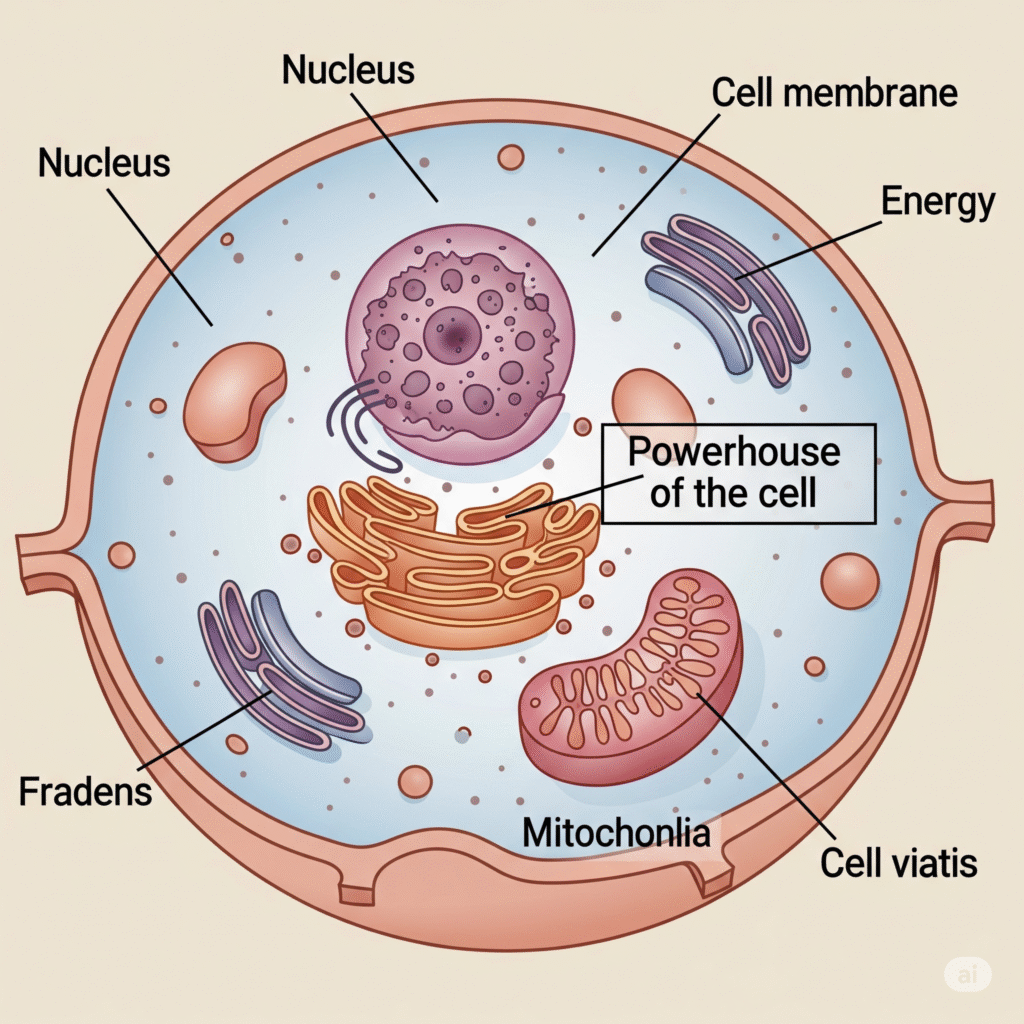
What it is: Coenzyme Q10, or CoQ10, is a compound that your body produces naturally. It functions like a vitamin and is present in every single cell of your body.
How it supports cellular health: CoQ10 plays two critical roles. First, it’s a vital component of the mitochondria—the tiny powerhouses inside our cells. It acts like a spark plug, helping to convert the food we eat into adenosine triphosphate (ATP), the fundamental energy currency of the cell. Without enough CoQ10, energy production falters, leading to cellular fatigue. Second, it’s a potent antioxidant, protecting cells, and especially the delicate mitochondrial membranes, from oxidative damage caused by free radicals—think of it as preventing “cellular rust.”
Why it’s important for longevity: Our natural production of CoQ10 begins to decline as early as our 30s. This decline is linked to many age-related conditions. Supplementing with CoQ10 can help replenish these levels, ensuring your cells—especially in energy-hungry organs like the heart, liver, and kidneys—have the power they need to function optimally.
2. NAD+ Precursors (NR and NMN): The Master Regulator
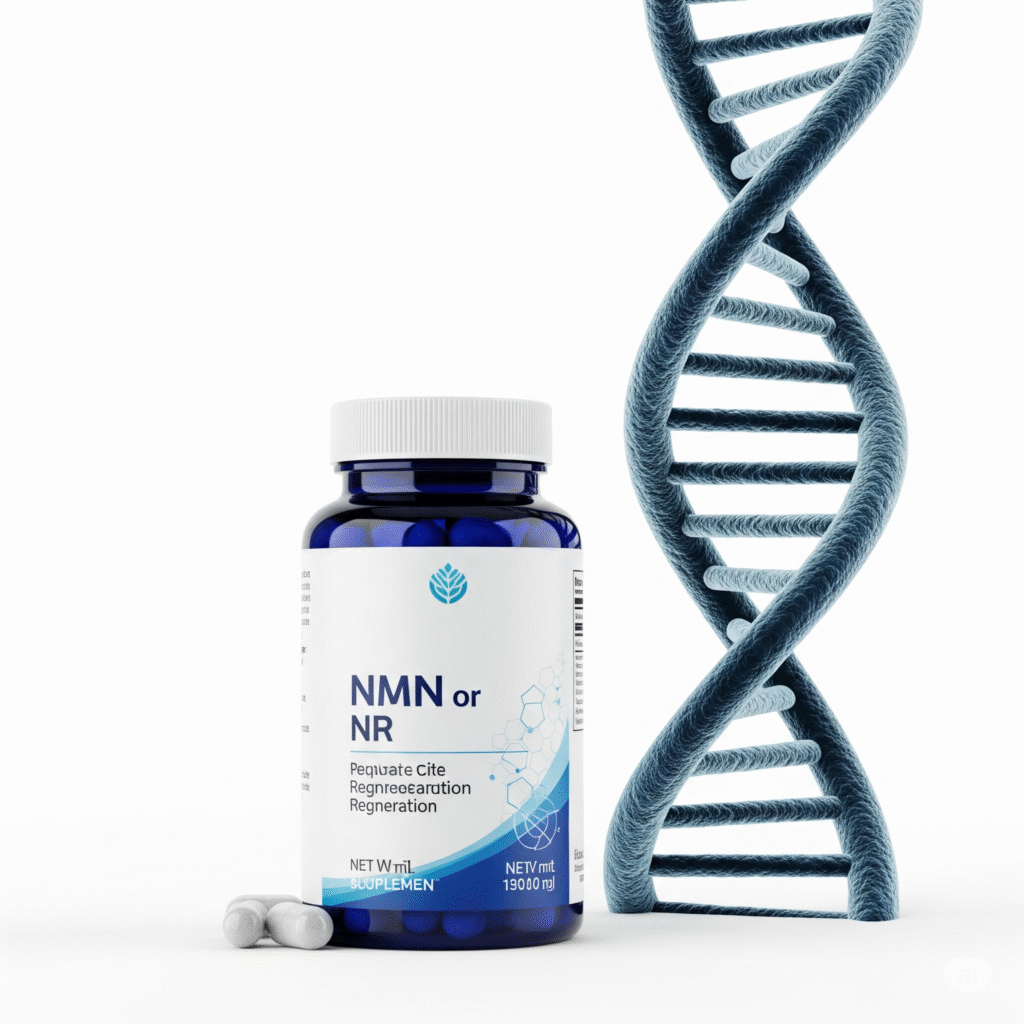
What it is: Nicotinamide adenine dinucleotide (NAD+) is one of the most crucial molecules in the body, central to metabolism and DNA repair. We can’t supplement with NAD+ directly, but we can take its precursors—Nicotinamide Riboside (NR) or Nicotinamide Mononucleotide (NMN)—which the body then converts into NAD+.
How it supports cellular health: NAD+ is the ultimate cellular multitasker. It’s essential for converting food into energy (like CoQ10) but also for activating a special class of proteins called sirtuins. Sirtuins are often called “longevity genes” because they regulate key cellular processes, including inflammation, stress resistance, and, most importantly, DNA repair. When your DNA gets damaged (a natural part of aging), NAD+ dispatches the sirtuin repair crew.
Why it’s important for longevity: Like CoQ10, NAD+ levels plummet with age—by the time we’re 50, we may have half the levels we did in our 20s. This decline impairs our cells’ ability to produce energy and repair themselves, accelerating the aging process. As confirmed by extensive research from institutions like the National Institute on Aging, boosting NAD+ levels through precursors is one of the most promising strategies for improving overall cellular health and promoting longevity.
3. Resveratrol: The Sirtuin Activator
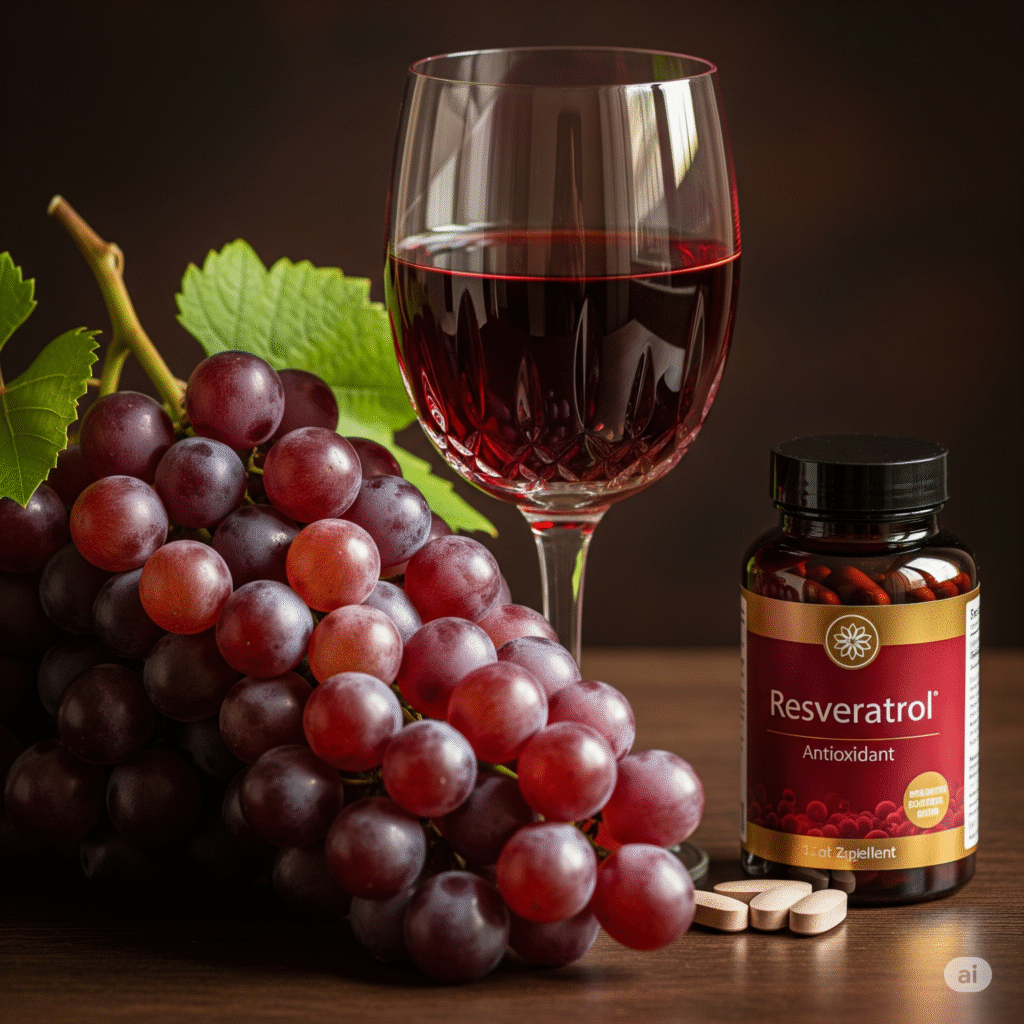
What it is: Resveratrol is a natural polyphenol, a type of plant-based compound found in the skins of grapes (famously in red wine), blueberries, and peanuts. It gained fame for its potential role in the “French Paradox”—the observation that French people have relatively low rates of heart disease despite a diet rich in saturated fat.
How it supports cellular health: Resveratrol is a powerful antioxidant, but its real magic lies in its ability to directly activate the same sirtuin “longevity genes” that NAD+ supports. Think of NAD+ as the fuel for the repair crew, and Resveratrol as the foreman shouting “Get to work!” It mimics the effects of calorie restriction, a proven method for extending lifespan in many organisms, by putting cells into a protective, survival-oriented state that enhances cellular health.
Why it’s important for longevity: By fighting oxidative stress and activating sirtuins, Resveratrol helps protect our DNA and cellular structures from the damage that accumulates over time. This dual-action approach makes it a powerful ally in the fight against age-related decline.
4. Omega-3 Fatty Acids: The Cell Membrane Protector
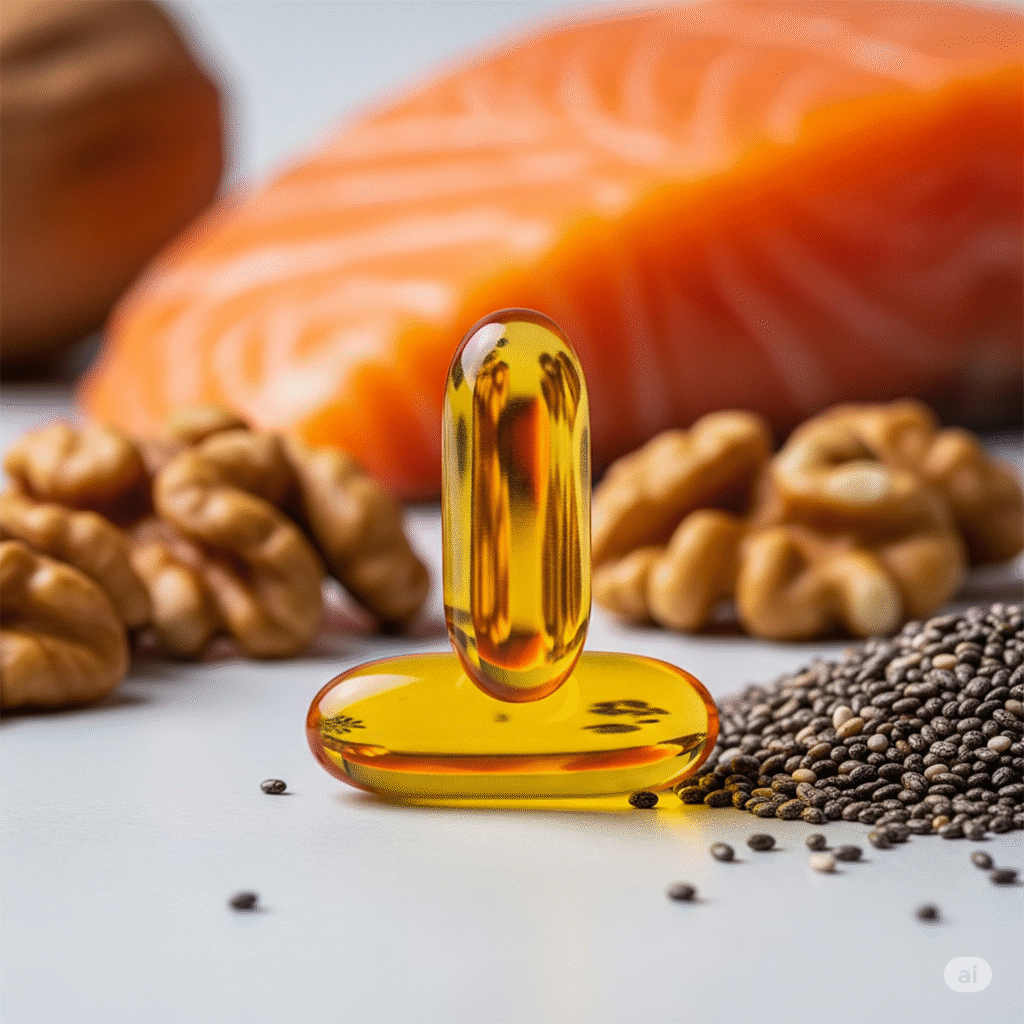
What it is: Omega-3s are essential fatty acids, meaning our bodies can’t make them and we must get them from our diet or supplements. The most important types are EPA (eicosapentaenoic acid) and DHA (docosahexaenoic acid), commonly found in fatty fish like salmon and mackerel.
How it supports cellular health: Every single one of your trillions of cells is enclosed in a cell membrane. This membrane isn’t just a wall; it’s a dynamic gatekeeper that controls what enters and leaves the cell. The health and fluidity of this membrane are critical for cell communication and function. Omega-3s are a key structural component of these membranes. A diet rich in Omega-3s leads to flexible, healthy cell membranes, while a diet high in unhealthy fats can lead to stiff, dysfunctional ones. According to the experts at the Cleveland Clinic, their benefits for heart and brain health are directly tied to this foundational role in our cells.
Why it’s important for longevity: Chronic inflammation is a major driver of aging, a process so significant it’s been dubbed “inflammaging.” Omega-3s are potent anti-inflammatory agents, helping to quiet this damaging background noise and creating a healthier environment for your cells to thrive for years to come.
5. Curcumin: The Inflammation Tamer
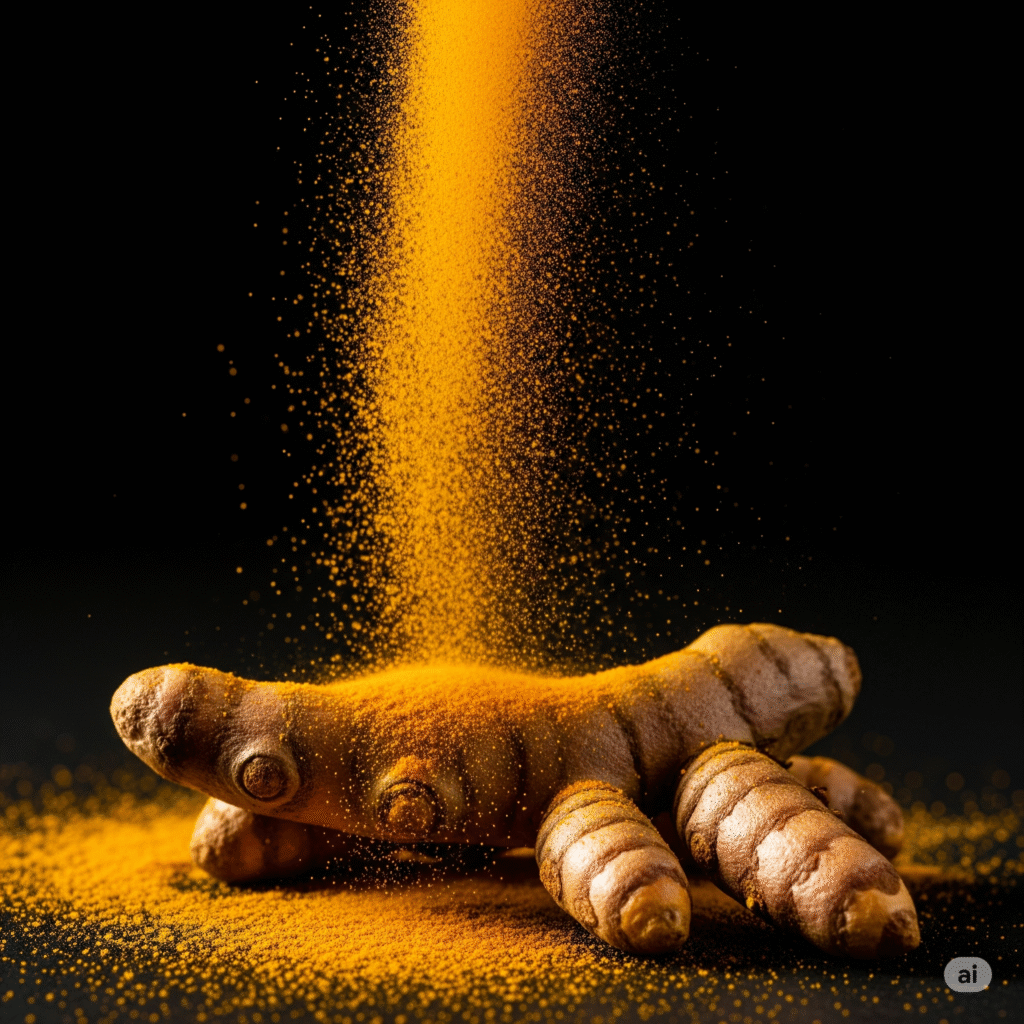
What it is: Curcumin is the main active compound in turmeric, the bright yellow spice that gives curry its signature color. It has been used in Ayurvedic medicine for centuries for its powerful medicinal properties.
How it supports cellular health: Curcumin’s primary superpower is its ability to combat inflammation at the molecular level. It can block NF-kB, a molecule that travels into the nuclei of your cells and activates genes related to inflammation. By neutralizing this master switch, curcumin helps prevent the chronic, low-grade inflammation that damages cells and accelerates aging. It’s also a strong antioxidant, further protecting your cells from free radical damage.
Why it’s important for longevity: By directly tackling “inflammaging,” curcumin helps preserve the integrity and function of your cells. Its ability to support brain health, joint health, and cardiovascular function makes it a comprehensive supplement for promoting a long and healthy life. When choosing a supplement, look for one formulated with black pepper (piperine), which dramatically increases its absorption.
A Quick Word of Advice
Before starting any new supplement regimen, it is absolutely essential to consult with your doctor or a qualified healthcare professional. They can help you determine the right dosages and ensure that these supplements won’t interact with any existing medications or health conditions.
The Takeaway: Invest in Your Cells
Aging is not a destiny written in stone; it’s a biological process that we can influence. By focusing on the foundation of your vitality—your cellular health—you are taking a proactive and powerful step toward a longer, healthier future.
While these five supplements offer targeted support, remember they are just that: supplements. They are meant to complement, not replace, the pillars of a healthy lifestyle. Eat real food, move your body, prioritize sleep, manage stress, and you will be building a body where your cells can truly flourish.

